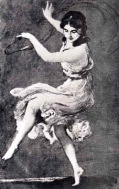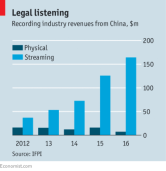1.
| A.Create different feelings for us. | B.Help us to develop good habits. |
| C.Develop our interest in money. | D.Influence natural environments. |
| A.Light music. | B.Rock music. | C.Sweet music. | D.Soft music. |
| A.Music in Restaurants | B.Good and Bad Music |
| C.Types of Music | D.Music and Behavior |
| A.They should turn the fan off first, |
| B.He has to go to his music class. |
| C.He wonders what kind of fan the woman is. |
| D.He5d like to listen to classical music. |
| A.The tape recorder doesn’t need batteries. |
| B.The batteries in the tape recorder need to be changed. |
| C.They would get a new tape recorder. |
| D.The tape player is made of plastic. |
4 . High school students who take music courses score significantly better on math, science and English exams than their non-musical peers, according to a new study published in the Journal of Educational Psychology.
School administrators needing to cut budgets often look first to music courses, because the general belief is that students who devote time to music rather than math, science and English, will
“Our research proved this belief
Gouzouasis and his team
The researchers found the
“Learning to play a musical instrument and playing in a band is very
The researchers hope that their findings will be brought to the
| A.overbalance | B.underperform | C.overwork | D.underplay |
| A.fantastic | B.strategic | C.embarrassing | D.wrong |
| A.resisted | B.delayed | C.deserted | D.continued |
| A.thanks to | B.in contrast to | C.regardless of | D.by means of |
| A.examined | B.published | C.stored | D.exchanged |
| A.report | B.sample | C.analysis | D.center |
| A.taking | B.composing | C.sharing | D.performing |
| A.casual | B.symbolic | C.predictive | D.changeable |
| A.transfer | B.decline | C.attach | D.limit |
| A.attractive | B.distinct | C.independent | D.demanding |
| A.life | B.literacy | C.team | D.survival |
| A.altering | B.enhancing | C.distracting | D.labeling |
| A.attention | B.question | C.edge | D.glory |
| A.in terms of | B.as a result of | C.in case of | D.at the cost of |
| A.health | B.music | C.science | D.school |
5 . When she was ten years old, Isadora Duncan dropped out of school to teach people dance. If that job was left to any other ten-year-old, it would have turned out frustrating, difficult, and a little discouraging.

But Duncan was different. Not only was she already talented enough to earn money even at that age, but she also had a rare kind of confidence that helped her treat troubles as fuel —something to elevate the fire that is already burning inside of her.
It’s no surprise, then, that when she moved to New York to join a theatre company, she found herself restricted. The existing dancing style, their way of operating—all of this seemed to her the work of a misguided past. Duncan was very direct about what she wanted, confidently telling people she had a different vision of dance that she was going to spread in the world. This, naturally, led to ridicule and laughs early on, but as she built up her work, these instances became less frequent. Today, she is remembered as “The Mother of Dance,” with much of the modern art owing its expressive style to her influence. Inspired by the ancient Greeks, she brought the style to life.
In her autobiography (自传), one of the things Duncan frequently refers to as the basis of her expressive spirit is the fact that she had a childhood where she wasn’t constantly watched. The expectations of her mother (who raised her) were open-ended. It was the freedom of this lifestyle that drove her to see what she could do.
Growing up, before she left school, she was told one of two things: that she was either completely useless or that she was a genius. There was nothing in between. Even when she started working, people either bowed to her or they basically ignored her. But there wasn’t one moment Duncan doubted her own genius.
There is an old quotation “if you judge a fish by its ability to climb a tree, it will live its whole life believing that it is stupid.” And it captures an important truth. At school, Isadora Duncan was a failure. In the dance hall, she gave form to brilliance.
1. What does the underlined phrase “treat troubles as fuel” mean?| A.Duncan used troubles to push her forward towards her dream. |
| B.Duncan was good at burning away everyday troubles. |
| C.Troubles turned Duncan into a confident girl. |
| D.Troubles lit the fire of dancing in Duncan. |
| A.Her experience in New York was the foundation of her career. |
| B.Her teaching job when she was little destroyed her confidence. |
| C.Her dancing style was not very well received at the beginning. |
| D.Her mother set higher expectation on her than she could bear. |
| A.It is useless climbing a tree to catch fish. |
| B.Everybody is a genius in his own way. |
| C.Miseries come from human stupidity. |
| D.Teachers can impact students greatly. |
| A.Isadora Duncan’s childhood and her achievements today. |
| B.Duncan’s career development and other dancers’ opinions of her. |
| C.Isadora Duncan’s early experiences and the reasons for her success. |
| D.Duncan’s high status in the dancing world and her unique expressive style. |
6 . Fall down as you come onstage. That’s an odd trick. Not recommended. But it saved the pianist Feltsman when he was a teenager back in Moscow. The experienced cellist Rostropovich tripped him purposely to
Today, music schools are addressing the problem of
Teachers and psychologists offer wide-ranging
Psychotherapist Diane Nichols suggests some strategies for the moments before
Extreme demands by conductors or parents are often
When Lynn Harrell was 20, he became the principal cellist of the Cleverland Orchestra, and he suffered extreme stage fright. “There were times when I got so nervous I was sure the audience could see my chest responding to the heartbeat, which was just total
It is not only
| A.assure | B.cure | C.remind | D.rob |
| A.anxiety | B.adolescence | C.principle | D.psychology |
| A.absent | B.blank | C.keen | D.narrow |
| A.advice | B.choices | C.services | D.education |
| A.instead of | B.along with | C.such as | D.with regard to |
| A.definite | B.neutral | C.natural | D.precious |
| A.ceremony | B.performance | C.lecture | D.rehearsal |
| A.audience | B.orchestra | C.staff | D.choir |
| A.at the face of | B.at the root of | C.in favour of | D.in contrast with |
| A.craze | B.fault | C.failure | D.panic |
| A.unusual | B.imperfect | C.invalid | D.unpopular |
| A.talented | B.unknown | C.young | D.experienced |
| A.Actually | B.Certainly | C.Luckily | D.Similarly |
| A.appreciation | B.contribution | C.expectation | D.satisfaction |
| A.learn | B.offer | C.say | D.lose |
1.
| A.They learn singing and dancing. | B.They attend outdoor music festivals. |
| C.They work on the farm for charity. | D.They volunteer to work for others. |
| A.On the beach. | B.In a park. | C.On a farm. | D.In a stadium. |
| A.It is run on a profit-making basis. | B.It has achieved growing success. |
| C.Fans can have free lunch there. | D.Only superstars are invited to perform. |
| A.She feels bored with the idea. | B.She thinks ballet is funny. |
| C.She will not go with the man anyway. | D.She shows interest in the show. |
| A.Whether he has time on Saturday. |
| B.Whether he can get access to the concert. |
| C.Whether the tickets will be too expensive. |
| D.Whether the woman is available on Saturday. |
10 . A pirate’s life no more
HONEST souls intent on paying for the music they listened to used to have a hard time in China. In the era of compact discs,

Yet this is changing. Slowly, but
Not everybody is paying: of the 600m Chinese who listen to music online only 20m have a paid subscription, which costs between 8 and 12 yuan a month. The rest
If Chinese consumers have developed a liking for
Not all is
One cause for this market concentration is acquisitions: last year Tencent bought two big competitors. More important,
Tencent executives say that they need such exclusivity to ensure the legitimacy of streaming services and to reduce piracy further. But having one firm have so much power “is never healthy”, says an executive at a rival firm. With the market growing quickly, the labels may
| A.admired | B.criticized | C.common | D.rare |
| A.service | B.form | C.composition | D.trial |
| A.ultimately | B.unexpectedly | C.surely | D.agreeably |
| A.make up | B.go on | C.start up | D.tune in |
| A.collapsing | B.coming | C.pressing | D.staying |
| A.popular | B.better | C.legal | D.personal |
| A.respond | B.subscribe | C.apply | D.adapt |
| A.casually | B.privately | C.instantly | D.digitally |
| A.effective | B.simple | C.rosy | D.noble |
| A.purchased | B.dominated | C.expanded | D.established |
| A.claims | B.occupies | C.targets | D.seeks |
| A.therefore | B.however | C.meanwhile | D.moreover |
| A.reserved | B.compulsory | C.exclusive | D.complete |
| A.allowed | B.meant | C.recommended | D.likely |
| A.compare | B.resist | C.make | D.reconsider |



